



















SURPASSED GOAL BY MORE THAN DOUBLE AND ONE YEAR AHEAD OF SCHEDULE
In 2018, founding members of NextWave Plastics committed at the Our Ocean Conference to divert a minimum of 25,000 tonnes of ocean-bound plastic waste by the end of 2025.

20 MEMBER COMPANIES ACROSS 7 YEARS SPANNING CONSUMER ELECTRONICS TO HOME GOODS



DIVERTED A TOTAL OF 53,213 TONNES OF OCEAN-BOUND PLASTIC



EQUIVALENT TO OVER 5.9 BILLION* SINGLE-USE PLASTIC WATER BOTTLES *One

8 AWARD WINS CELEBRATING INNOVATION AND IMPACT

FEATURED BY THE WORLD ECONOMIC FORUM AS A MODEL FOR EFFECTIVE CROSS-SECTOR COLLABORATION

CO-FOUNDER & MEMBER

In 2017, recognizing the mounting environmental impact of ocean plastic pollution, Lonely Whale and Dell Technologies convened a consortium of global companies to develop solutions to the crisis. One year later, at the Our Ocean Conference, NextWave members announced a collective goal to divert 25,000 tonnes of ocean-bound plastic (OBP) by the end of 2025 – aligned with UN SDG 14.1. Over the course of the next seven years, 20 global companies took part in NextWave, each making a commitment to this unique collaborative platform and to use OBP in their products or packaging.
Over the course of the initiative, NextWave members have incorporated OBP into a wide variety of products, from ink cartridges to office furniture to credit cards and carpet tiles. As anyone working in product innovation can attest, evaluating and deploying new materials can take years — so the rapid adoption of OBP by NextWave members is a remarkable testament to radical collaboration. We are incredibly proud to share that at the end of 2024, NextWave has surpassed our goal of 25,000 tonnes by more than double — diverting 53,213 tonnes - one year ahead of schedule.
Relative to the amount of plastic entering the ocean - 11 million tonnes per year - NextWave’s collective usage may feel like a drop in the bucket. However, NextWave was never solely about realizing the 25,000 tonne goalrather, it was intended to make OBP commercially viable and scalable across diverse group of companies and stakeholders get together and share their expertise and know-how. NextWave helped establish the OBP supply chain - from a handful of OBP suppliers in 2017 to over 100 today.
With this report, we mark the successful completion of NextWave’s operations at the end of 2024. We are proud of reaching our goal one year early and to have
played a critical role in establishing a market for OBP. NextWave members will continue to incorporate OBP into their products and packaging, and to address plastic waste across a range of efforts. To support other companies looking to source OBP, we will be making NextWave’s OBP supplier list publicly available. Importantly, NextWave’s firstof-its kind Framework for Socially Responsible Ocean-Bound Plastic Supply Chains, published in 2021, was a precursor for the Responsible Sourcing Initiative.
Our collective work to combat ocean plastic pollution continues, and we appreciate NextWave members over the years for setting the pace. NextWave’s efforts served as more than just a diversion target — it was a proof of concept for what transparent, time-bound, cross-sector collaboration can achieve. At launch, the OBP supply chain was fragmented and underdeveloped. Today, thanks to the work of NextWave members and partners, over 100 OBP suppliers are active globally. As this report marks the completion of NextWave’s operations, it also affirms the power of aligned action to transform markets and inspire future initiatives.
With appreciation to our members,
Michael Sadowski
Executive Director, The Circulate Initiative
Emy Kane
Executive Director, Lonely Whale

“Partnership is key to driving lasting impact. These cross-sector partnerships in collaboration with Lonely Whale and Adrian Grenier have enabled a global supply chain to support the viable commercialization of diverted ocean bound plastic. Dell’s combination of technology and supply chain expertise, plus a history of successful sustainability innovation, made tackling ocean bound plastic a natural for us.”
— Oliver Campbell, Dell Technologies

Loney Whale and Dell discussed the concept of NextWave and conducted a feasibility assessment. Planning began.
In February, Lonely Whale and Dell supported the UN Environment Programme’s Clean Seas campaign launch in Bali, Indonesia, urging businesses to take action on plastic waste.
In December, NextWave launched in New York City with Dell and Adrian Grenier.
In March, the European Commission proposes the European Plastics Strategy, aiming for all plastic packaging in the EU to be recyclable by 2030.
In September, at Our Ocean in Bali, Indonesia, NextWave announced its commitment to divert 25,000 tonnes of ocean-bound plastic (OBP) by the end of 2025.
In October, NextWave was announced a winner of P4G’s Circular Economy Award sponsored by the Danish Government.
In May, 187 countries agree to amend the Basel Convention to restrict global trade in plastic waste, making it harder for wealthier nations to dump waste in developing countries.
In May, NextWave Awarded Silver from the Halo Awards for Best Environmental Campaign
In March, NextWave releases Rethinking Plastic, its first annual impact report.
In September, Pew and Systemiq release “Breaking the Plastic Wave,” warning that plastic pollution could triple by 2040 without urgent action.
In March, NextWave publishes “Making Waves,” its second impact report.
In April, NextWave was announced a winner of the SDG Global Action Awards.
In October, NextWave published its “Framework for Socially Responsible Ocean-Bound Plastic Supply Chains” (SRF).
In January, NextWave published “Diving Deep,” its third impact report.
In February, NextWave was awarded Silver by the Anthem Awards.
In March, the UN Environment Assembly (UNEA-5.2) in Nairobi, Kenya passes a historic resolution to negotiate a global treaty on plastic pollution (“global plastics treaty”), aiming
2022 (continued)
In November, the first negotiating session toward a Global Plastics Treaty (INC-1) is held in Punta del Esta, Uruguay.
In May, the second negotiating session toward a Global Plastics Treaty (INC-2) takes place in Paris, France with over 170 countries participating.
In June, NextWave published “Sea Change,” its fourth impact report and announcement that The Circulate Initiative had stepped into the role as convenor of the consortium. In the same month, The Circulate Initiative launched the Responsible Sourcing Initiative with the goal of improving the livelihoods of informal waste workers.
In November, the third negotiating session toward a Global Plastics Treaty (INC-3) was held in Nairobi, Kenya, with debates over restricting plastic production.
In April, countries gathered for the fourth negotiating session toward a Global Plastics Treaty (INC-4) in Ottawa, Canada.
In May, NextWave was featured in the Global Plastic Action Partnership’s (GPAP) report “Circular Industry Solutions for a Global Plastics Treaty” as a best in class example of corporate partnerships.
In May, The Circulate Initiative published the Harmonized Responsible Sourcing Framework for Recycled Plastics, which draws from work done by the NextWave consortium.
In November, the fifth negotiating session toward a Global Plastics Treaty (INC-5.1) takes place in Busan, South Korea.
In February, a new implementation project in India launched as part of the Responsible Sourcing Initiative centered on Srichakra Polyplast’s value chain.
In May, a new implementation project in Kenya launched as part of the Responsible Sourcing Initiative centered on Mr. Green Africa’s value chain.
In August, the fifth negotiating session toward a Global Plastics Treaty continued (INC-5.2) in Geneva, where discussion topics included production limits, chemicals of concern, and funding the transition to a circular economy.
In September, NextWave published Ripple Effect, its fifth, and final, report.
At the end of 2024, NextWave surpassed its goal by more than double, diverting 53,213 tonnes of OBP — one year ahead of schedule.
We are proud of reaching our goal early and to have played a critical role in establishing a market for OBP. NextWave members will continue to incor porate OBP into their products and packaging, and to address plastic waste across a range of efforts.

It has been said that constraints spark innovation, and the collective 25,000 tonne goal served as a constraint and north star that drove NextWave members to think creatively about how to incorporate oceanbound plastic into their products and packaging.
—
Michael Sadowski, Executive Director, The Circulate Initiative

There’s power in naming where you’re going and when you’ll get there. Focused, time-bound goals create momentum—and just as importantly, they allow us to tell stories that capture not only the outcomes, but the real work, learning, and partnership that shape the journey.
— Emy Kane, Executive Director, Lonely Whale





From coastlines to carrying cases: Dell’s innovative use of oceanbound plastic across its portfolio.
For decades, Dell Technologies has been committed to identifying and incorporating renewable, recycled and low emissions materials into our packaging and products. In addition to helping establish NextWave Plastics, the first-ever commercial-scale socially responsible supply chain for recycled ocean-bound plastics, Dell has found innovative ways to implement oceanbound plastic into our portfolio, from packaging for laptop trays and cushions for servers to PC fan-housing components and carrying cases.
A key example is the Dell EcoLoop™ Carrying Case portfolio, with select carrying cases containing 100% ocean-bound plastic material in the exterior fabric. For instance, the Dell Pro 13-14 Plus EcoLoop Backpack is made from approximately 8 recycled bottles collected from ocean coastlines or major waterways.* This is part of Dell’s broader efforts towards responsible material use, reducing waste, and integrating sustainable materials across their portfolio, from backpacks to select PC components and beyond.
“Through NextWave, we’ve proven the power of collective action. By transforming ocean-bound plastics into packaging and components, we’ve shown that waste can drive innovation and deliver business and societal benefits. Eight years ago, we envisioned a sustainable future built on shared interests and an openness to exploration. Today, we’re proud to have surpassed those goals and hope that NextWave serves as a blueprint for inspiring future collaboration across industries.”
— Oliver Campbell Director and Distinguished Engineer, Dell Technologies


HHI x reXtore: Closing the loop in sustainable exhibitions.
At Heng Hiap Industries (HHI), sustainability is not just a mission— it’s a movement. We confront the growing challenge of OceanBound Plastic (OBP) head-on by transforming it into high-quality, recycled materials that inspire industries to reduce waste and embrace the circular economy. Our groundbreaking partnership with Rextore exemplifies this commitment.
Together, we create OBP-based materials for STAXX, an innovative modular block system designed to revolutionize reusable exhibition booths. After every event, Rextore reclaims and reuses the blocks, setting a new standard for waste reduction and closing the loop in the exhibition industry. At HHI, we don’t just talk about sustainability—we live it. Turning waste into endless opportunities, we proudly stand as your trusted partner in building a cleaner, greener future. Driving sustainability, one innovation at a time.
“Instead of simply producing plastic products faster and cheaper in a linear model, HHI, as a member of NextWave, has gained a seat at the table where we and other members are putting the required thought and effort into designing circular and sustainable products for global brands.”
— Kian Seah Founder & CEO, Heng Hiap Industries


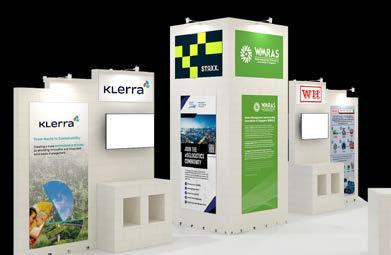

Since joining NextWave in 2018, HP Inc. has been a committed contributor in the fight against ocean plastic pollution. With a portfolio of over 450 products incorporating ocean-bound plastic (OBP), including the HP ink cartridges, desktop and notebook PCs, workstations, and displays, HP has demonstrated that sustainability and innovation go hand in hand. In total, HP has used 2,876 metric tons of OBP in its products since 2016, helping NextWave to establish a scalable model for responsible sourcing.
HP’s leadership extended beyond product integration. As a key member of the working group that developed NextWave’s Framework for Socially Responsible Ocean-Bound Plastic Supply Chains, HP helped shape industry standards that now inform The Circulate Initiative’s Responsible Sourcing Initiative. The Responsible Sourcing Initiative takes this work forward by embedding social criteria into OBP procurement and improving the livelihoods of informal waste workers and waste pickers who are vital to the recycling ecosystem.
“Our commitment to ocean-bound plastic isn’t just about materials—it’s about building a resilient, ethical supply chain that uplifts communities and protects our planet for future generations. We are proud to have contributed to Next Wave’s OBP Goal, and excited to continue the journey by focusing on improving the lives of the people involved in sourcing of these recycled materials.”
— Alex Michalko Director of Climate and Responsible Sourcing, HP INC.



A legacy of sustainability: Freedom Chair joins Humanscale’s Ocean Collection.
Coinciding with the 25th anniversary of the Freedom chair, Freedom has joined Humanscale’s Ocean Collection with select Freedom Ocean configurations composed of up to five pounds of ocean plastic. This includes reclaimed fishing nets, which are known to be one of the most harmful types of ocean plastic, damaging delicate ecosystems and marine life. As a certified B Corporation, Humanscale is committed to manufacturing that leaves the world better off, one product at a time.
“NextWave had a remarkable approach of bringing companies together to collaboratively address a huge, complex issue at scale. I appreciate the opportunity to work alongside other passionate members, learn from their experiences, and celebrate each others’ successes.”
— Jane Abernathy Chief Sustainability Officer, Humanscale




From innovation to action: Solgaard’s commitment to cleaner oceans.
Since the brand’s conception in 2016, Solgaard has been focused on maximizing positive impact through sustainable initiatives whilst making premium products.
In cooperation with The Solgaard-Nyx Foundation and its network of impact partners, Solgaard cleans up an estimated 6 lbs. of oceanbound plastic from coastal communities and waterways with every purchase. As part of its flagship impact partnership and multi-year plastic collection and mangrove health restoration projects with Sungai Watch, Solgaard, in cooperation with The Solgaard-Nyx Foundation, funded the 2023 opening of a plastic waste collection and sorting facility in the mangroves of Denpasar, Bali, and installing a series of river waste collection barriers across Indonesia.
Following key industry learnings and impact work within the NextWave Plastics consortium, Solgaard shifted its business model to meet the current realities of the larger global plastic problem, prioritizing cleaning up various types of plastic waste beyond just PET, to also include low-value plastics, creating a robust funding mechanism for meaningful plastic cleanup impact.
“There’s so much power in learning from others’ experiences. Knowledge-sharing is a great part about being in the NextWave consortium.”
— Adrian Solgaard Founder & CEO, Solgaard


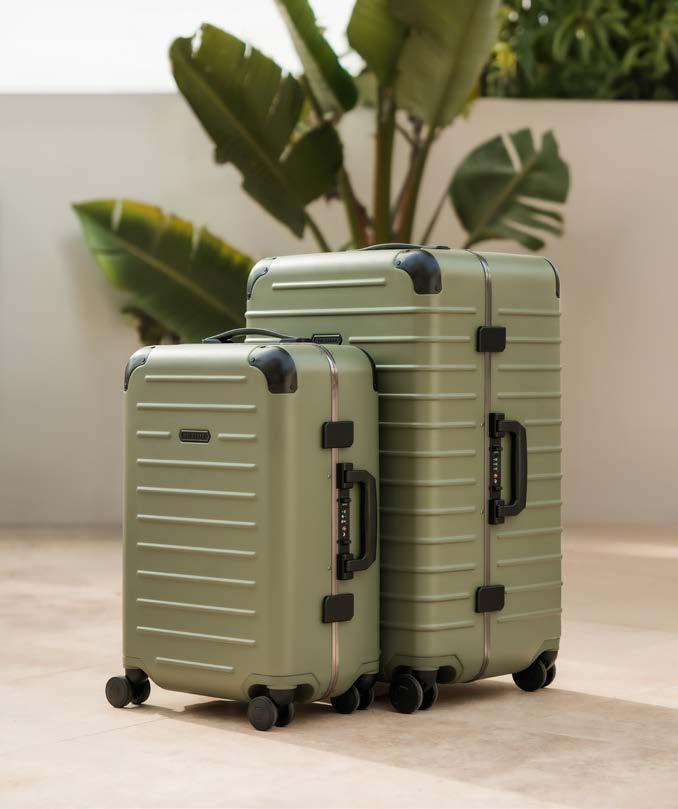
Prevented Ocean Plastic™: Lush’s commitment to cleaner oceans.
Lush, a pioneer in sustainable cosmetics, has partnered with Prevented Ocean Plastic™ (POP) to enhance its packaging sustainability. Expanding on its use of 100% recycled PET, Lush introduced Prevented Ocean Plastic™ across its 100ml, 250ml, and 500ml bottles in the UK, with the POP logo on pack, and has started to scale across global markets.
Sourcing from communities in areas most at-risk of ocean plastic pollution, Prevented Ocean Plastic™ prevents plastic from entering the water while building recycling infrastructure and supporting local communities with direct jobs and consistent income opportunities. So far they have stopped 2.5 billion plastic bottles from reaching the ocean. And through initiatives like the “Bring it Back” recycling scheme, which has collected over 2.27 million items, Lush continues to take the lead in responsible packaging and circular economy solutions.
“By choosing Prevented Ocean Plastic™, Lush are supporting the essential workers of the informal waste sector, preventing thousands of plastic bottles from reaching the ocean, and giving a new life to previously discarded material. Working together with them and more brands and businesses around the world we can lead the transformation of the recycled materials industry and build a positive, transparent circular economy where every bottle is counted and every person counts.”
— Raffi Schieir Founder & CEO, Prevented Ocean Plastic

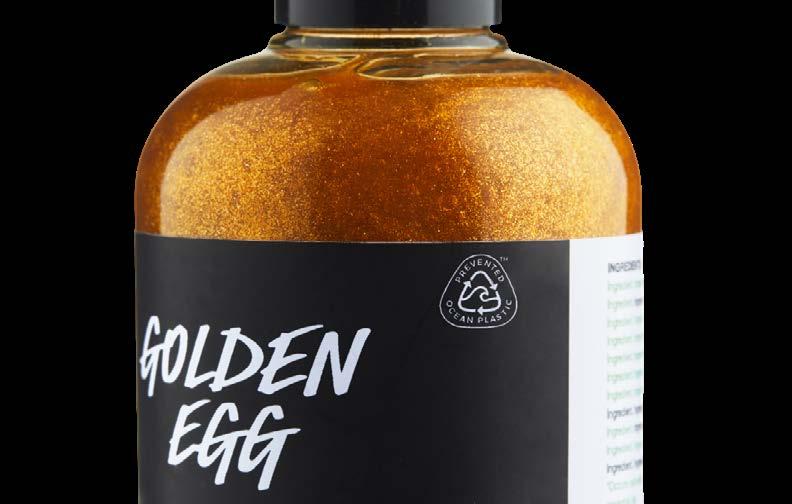
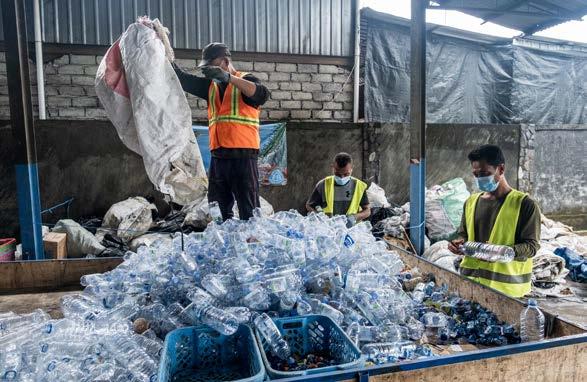

A cut above: HORL’s Knife Sharpener crafted from #tide Ocean Material®
S
ince its inception, #tide has transformed ocean-bound plastic into premium materials, exemplified by its partnership with HORL 1993 GmbH. In January 2024, HORL launched the HORL3 Cruise, a rolling knife sharpener made from #tide ocean material®. Using recycled ocean-bound polypropylene, it features a unique sand-like finish while upholding HORL’s commitment to quality and sustainability.
“We decided in favour of #tide ocean material because our tests showed that the quality of the material meets our extremely high requirements”, says Julian Ruf, Manufacturing and R&D Director at HORL. “At the same time, we demanded the greatest possible transparency about the origin of the material, which we got with #tide.”
Traditionally crafted from wood, HORL’s shift to #tide’s material reflects a dedication to environmental responsibility. This collaboration showcases how sustainable innovation can drive high-quality, functional products. And increase sales: By using #tide Ocean Material, HORL was able to offer the HORL®3 Cruise to a wider audience at a more affordable price. In conjunction with an optimisation of features and more intensive marketing, sales figures have tripled compared to the previous model HORL®2 Cruise.
“Tackling the issue of plastic pollution can only be done collaboratively. We are putting egos aside by learning from each other and growing as companies and as an organization. This is the culture we need. Our materials are as good and versatile as virgin plastics and building a resilient and efficient eco-system is what will enable us to rapidly scale this market.
— Thomas Schori Founder, #tide


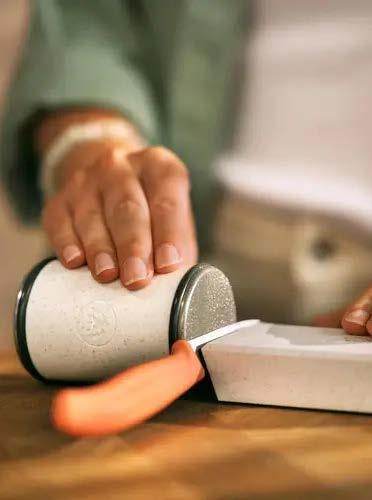

nfortunately, countries failed to agree on a global treaty to curb plastic pollution when they met in Geneva in August 2025. Such a treaty is critical to solving the plastic pollution crisis, and to creating a clear and level playing field for companies that produce and use plastic in their products and packaging.
NextWave was formed well before the International Negotiating Committee on the Global Plastic Treaty (INC) process kicked off and serves as a blueprint for how companies from across sectors can work together to solve complex, pre-competitive challenges and develop new supply chains. The 25k tonne goal served as a north star for the consortium and created the parameters for innovation and cross-sector collaboration. NextWave members developed a keen understanding of the ocean-bound plastic ecosystem, and addressed critical areas, especially the human rights of the informal waste workers that are the foundation of plastics recycling in many emerging markets. NextWave’s successful conclusion demonstrates that cross-sector collaboration can drive measurable environmental outcomes. As the tools developed through this work are now open-sourced, they are positioned to support a wide range of industries in responsibly sourcing ocean-bound plastic, or in building their own programs inspired by our founding principles.
As we look ahead, we hope that countries can reconvene and craft a strong global agreement on plastic pollution, and that NextWave can be a model for how the private sector can contribute to eliminating plastic waste.
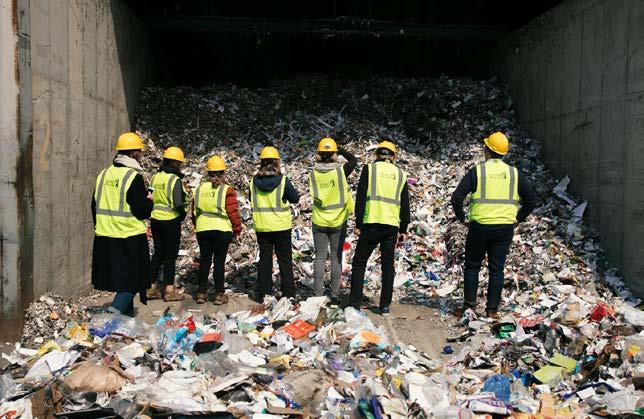
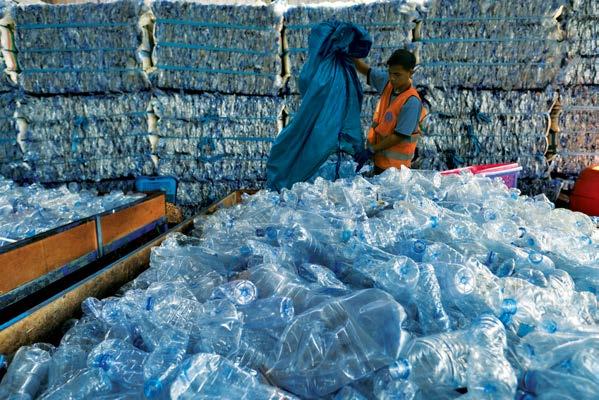

With NextWave’s conclusion, we hope to leave behind a legacy of measurable impact and industry collaboration that can serve as a blueprint for others to build on. To help accelerate progress beyond our own journey, we’ve open-sourced our supplier database — now freely available to support companies committed to sourcing ocean-bound plastic. While our program has sunset, the Framework for Socially Responsible Ocean-Bound Plastic

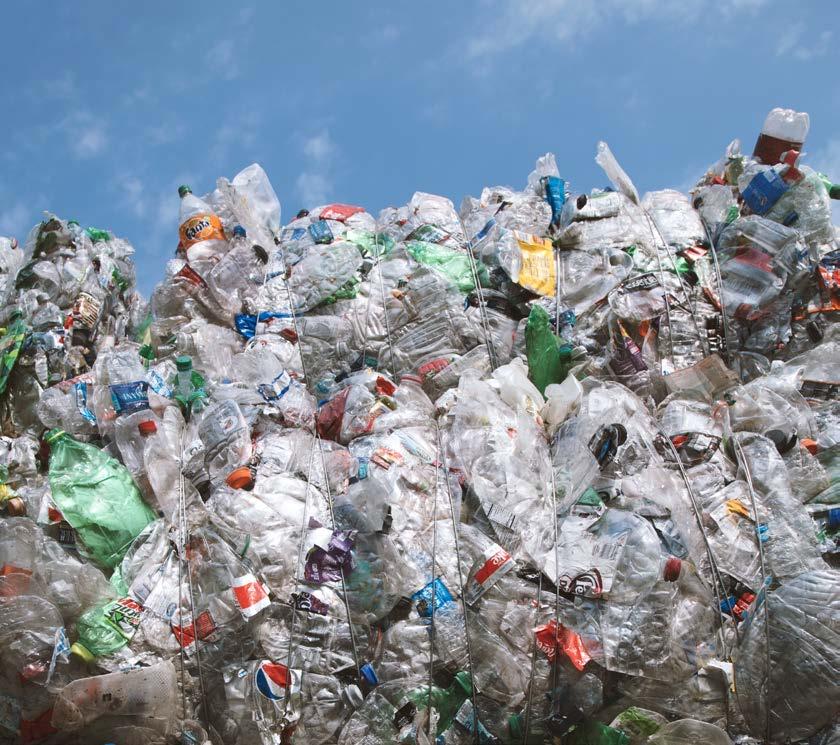
envisioned a sustainable future built on shared interests and an openness to exploration. Today, we’re proud to have surpassed those goals and hope that NextWave serves as a blueprint for inspiring future collaboration across industries.
— Oliver Campbell Director & Distinguished Engineer Dell Technologies


Built for coalition membership, now a publicly accessible tool.

Informed by NextWave’s Framework for Socially Responsible Supply Chain, RSI is a program of The Circulate Initiative.

Case studies of successful collaborations from NextWave members.
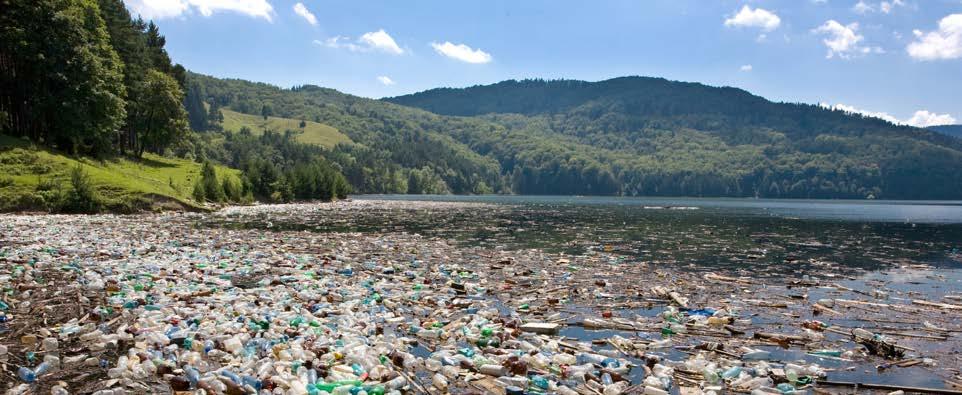

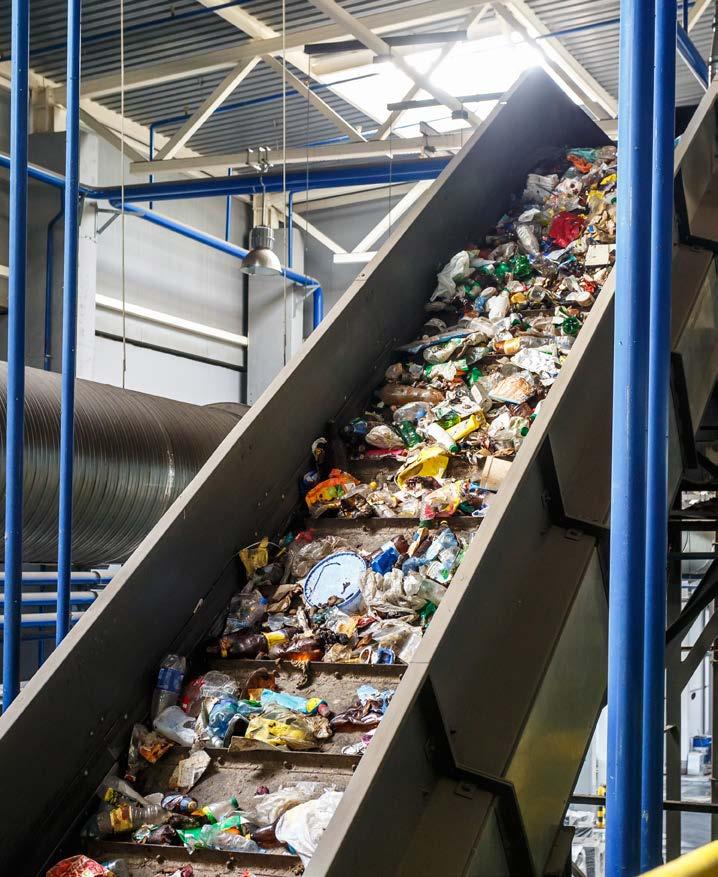
The Circulate Initiative is a non-profit organization that works to solve the plastic pollution challenge and build circular and equitable economies across emerging markets. It delivers cutting-edge research, builds high-impact programs, and drives collective action with industry stakeholders including businesses, investors, and policymakers.
For more information, please visit www.thecirculateinitiative.org.



Founded in 2015 by Adrian Grenier and Lucy Sumner, Lonely Whale has spearheaded impactful global movements to raise awareness and offer alternatives to problematic plastics, convened a consortium of multi-national brands to create the first global network of oceanbound plastic supply chains, and supported the global youth movement with the tools and network needed to advance their efforts to secure a future with clean seas.
To learn more and support, please visit www.lonelywhale.org or follow @LonelyWhale.


Learn more about The Circulate Initiative and Lonely Whale through their websites.











